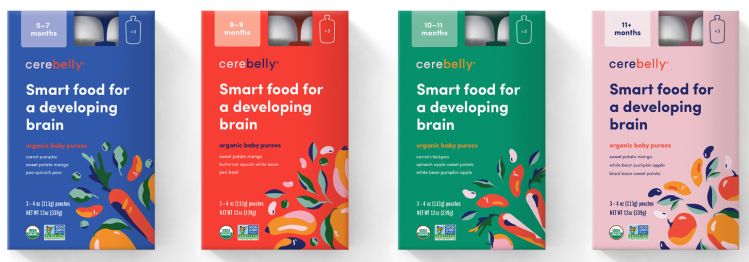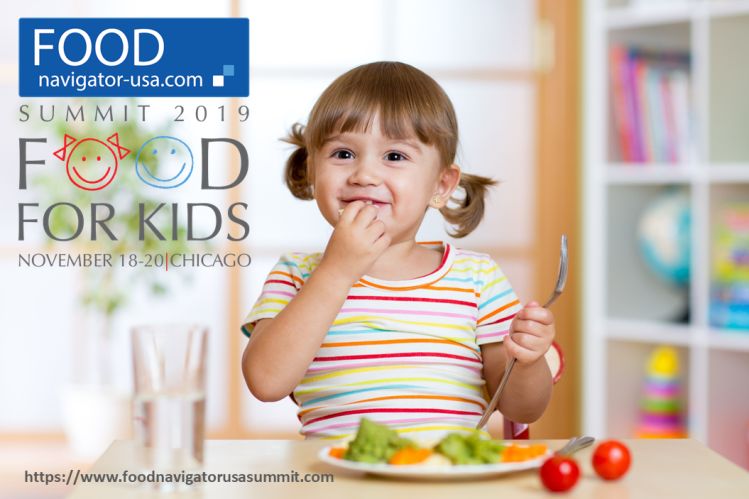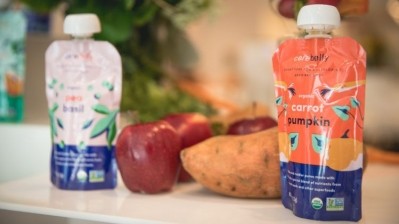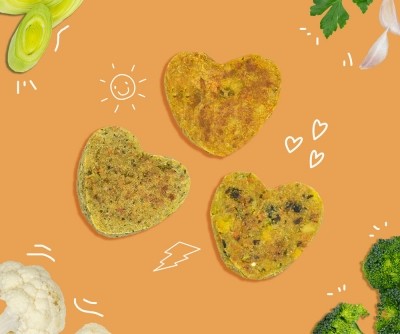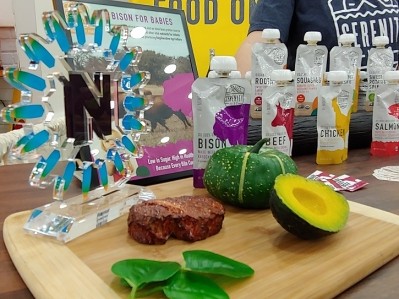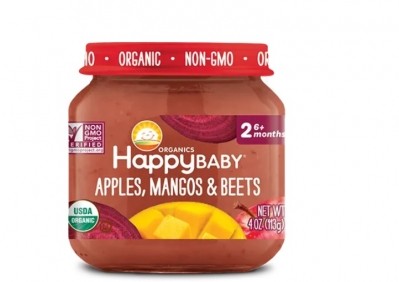Cerebelly: ‘when neuroscience meets nutrition science’
Brain food for babies? Cerebelly launches ‘veggie-first’ line nationwide at Whole Foods
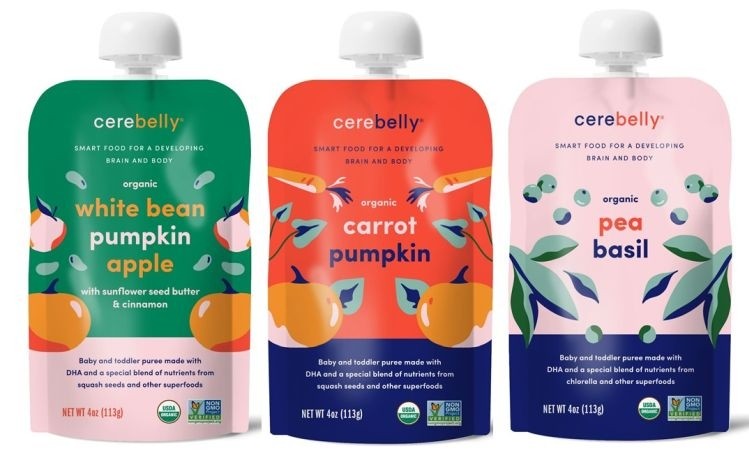
Based on research from Dr Purzner – best known for her pioneering work with novel approaches to tackle childhood brain cancer – Cerebelly seeks to give babies the key nutrients their growing brains need, when they need them, CEO Jennifer Zeszut told FoodNavigator-USA.
“Rather than a one-size fits all approach, we’re looking at which areas of the brain are in rapid growth mode when, month by month, and making sure the essential nutrients that can support that growth are there.
“There’s a patent pending that’s owned by Stanford University [as Dr Purzner developed the science underpinning Cerebelly while she was a graduate student at Stanford] and licensed to Cerebelly, that looks at the growth periods for each region of the brain from 3-18 months and then maps those against babies’ nutritional needs at each stage – iron, lutein, DHA, selenium, choline, zinc, thiamin, niacin – and so on.
"So it’s a nutritional blueprint that we give to our dietitians, nutritionists and food experts and it has been for them to work out how to meet that blueprint with products that taste great.”
The organic certified, plant-based brand, which has just launched a direct to consumer business and is rolling out nationwide at Whole Foods this week, is backed by $6.2m via two rounds of funding from a range of investors including Knudsen Capital, Imaginary, and Tom Chapman, co-founder of Matches Fashion.
Veggies are the #1 ingredient
The ‘veggie-first’ brand delivers key nutrients from the long-chain omega-3 fatty acid DHA, to zinc and iron via whole food ingredients such as chlorella, spinach, kelp, Maitake mushroom, sunflower seeds, squash seeds, and spinach, but has also dialed up the protein - sourced from plant-sources such as peas, beans, quinoa - to around 4g/pouch in siz out of 10 of its pouches, and dialed down the sugar, in its formulations, said Zeszut.
Each pouch focuses on a fairly narrow age range, such as 5-7 months, 8-9 months, 10-11 months, she added.
“Brands are not typically adding sugar to baby food, but when fruit is the first ingredient, they can be naturally high in sugar, which is not only bad for your body chemistry but it also helps form taste preferences. So in our products, veggies [which are lower in sugar than fruits] are the #1 ingredient. So we have sweet potato and mango, which still has the sweetness that babies love, but sweet potato is the first ingredient."
Shelf-stable pouches
Asked why Cerebelly had opted for shelf stable pouches that have gone through a retort process, as opposed to making refrigerated babyfood treated with high pressure processing (which proponents claim is less destructive to key vitamins), Zeszut said all the 15-18 essential nutrients listed on Cerebelly products are tested for post the heat/steaming treatment and therefore retained in the final product, although she acknowledged that vitamin C levels are “significantly diminished” during the retort process.
“However, vitamin C is the easiest nutrient to find anywhere, so we’ll make sure that parents know to give their kids some blueberries or some cantaloupe [both high in vitamin C] as a supplement [to packaged baby food].”
Shelf-stable pouches, she added, are more convenient and affordable for parents, key factors in ensuring the Cerebelly is accessible to a broader audience.
The first wave of products at Whole Foods will come in packs of three for $8.49, which works out at $2.83/pouch; while pouches sold via the Cerebelly website vary from $2.31 to $2.89 depending on order size.
What nutrients are important for brain development?
Find out at FoodNavigator-USA's FOOD FOR KIDS summit (Chicago November 18-20) which will tackle a wide variety of topics from brainfood for kids, how children's flavor preferences are developed, how to conduct product testing with kids, and how to build a kids' food brand. Get more info and register HERE.
